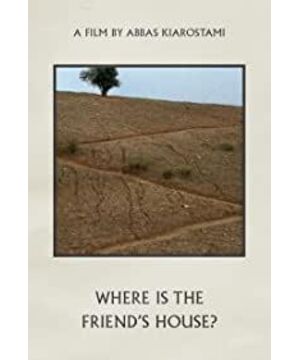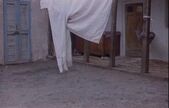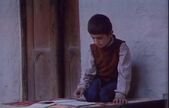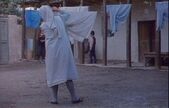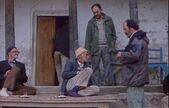I can never forget the real sense of those actors. The use of non-professional actors is very common in Iranian films, because these films are often an important means of reflecting Iran's real society in addition to artistic pursuits. From those performances that are not acting, it can be seen that every actor is just playing himself or someone he is familiar with. If not, the performance would never be so natural and flawless, and it would not be so touching.
In the final analysis, this is also a primary school student who accidentally brought home the workbook of the same desk. In order to prevent the same desk from being scolded, he struggled to find a home at the same desk, hoping to return the notebook, but finally returned without work and chose to go back. The family came up with the best of both worlds - helping classmates finish their homework. It was really touching to see his hard work and persistence along the way and the "failures" he encountered: the mother, who was still in confinement, raised his disdain for him to return the book to a scolding, and the grandfather who was sitting on the street doing nothing. He found a "problem" out of nothing. However, all this could not stop Ahmed's determination to return the book-he always muttered self-reproach on his lips and innocent face, which made people feel pity, and he followed a man he thought was the father of his classmate to climb the mountains again. Find a classmate's home.
"If it were me, I would have helped to finish the homework, wouldn't things be much simpler?" This thought suddenly popped out of his mind. However, in the next second, I felt a slight fear: I, who had sympathized with Ahmed, who had been treated coldly by the elders just now, was completely beaten back to the original state by the relaxed mentality: I had used an adult's attitude. Mouth and face, reading a child's innocence condescendingly with the usual way of thinking and attitude of adults.
With the passage of time, the time we live in the world has been unstoppably stretched from the age of eight to the age of eighteen, twenty-eight, thirty-eight... and it is not just time that passes by, More perhaps, as a unique temperament of a certain age group, this insubstantial spiritual substance has been smoothed out by time, and the change of environment and identity no longer allows us to use the young way of thinking to deal with and consider life. variety. We gradually weaken and finally lose our naive insistence. This transformation is first external, which can be language and clothing, and then internal, such as values and thinking. It's like a slow chemical reaction, and the corrosion of oxidation is always from the outside to the inside. We are striving for the pleasure of growth, enjoying the life experience of breaking away from the naive cocoon, and we are keen on the rationalized behavior and emotion of adults: the unbiased and crystallized way of thinking - no longer indulge in innocence, busy integrating into the group , busy with damn business affairs, busy killing time and chasing a happy life, more realistic, more materialistic, and more inclined to mediocre people. Losing innocence is the price of growth.
Think carefully. What a terrible thing this is.
Once in the Japanese literature and culture class, I heard Teacher Ai Jing talk about one of the "Pillow Grass" -
"What is beauty? Beauty is when a child climbs up in front of an adult with great interest in spring and rubs it with his little hands wrapped in ribbons. I'll show you a little dust."
I do find this piece to be quite authentic, but I'm sorry I can only describe it that way. I do love these simple and innocent life experiences from the bottom of my heart, but sometimes I feel sadly that I am not enough. There is a little bit of what we see in a child's eyes that is irreparably missing from our perspective. The values of children and adults have undergone a fundamental transformation and are completely different. In this sense, growth itself is tantamount to destruction.
The sadness created by director Abbas without the sense of the camera is like a soft knife slicing cold wounds in his heart, but he did not go all the way "extreme". Instead, it takes a softer approach and ends the film: when Ahmed's classmates are weeping because they are about to be punished, Ahmed arrives just in time, but misunderstands their workbooks. ——A careful audience will know that the handwriting in the two books is the same - but the teacher does not seem to notice, but praises their homework: good.
Perhaps this is a kind of spiritual comfort, a kind of compensation. This deja vu is reminiscent of another Iranian film "Little Shoes". The seemingly irrelevant plot has the same trend, the same profound connotation and the same metaphorical ending. Children as the main object of depiction - this has to remind people of the popular "Summer of Kijiro". These films revealing the beauty and simplicity of nature all bring us wonderful sensory enjoyment and reflections on innocence and children.
View more about Where Is the Friend's House? reviews


